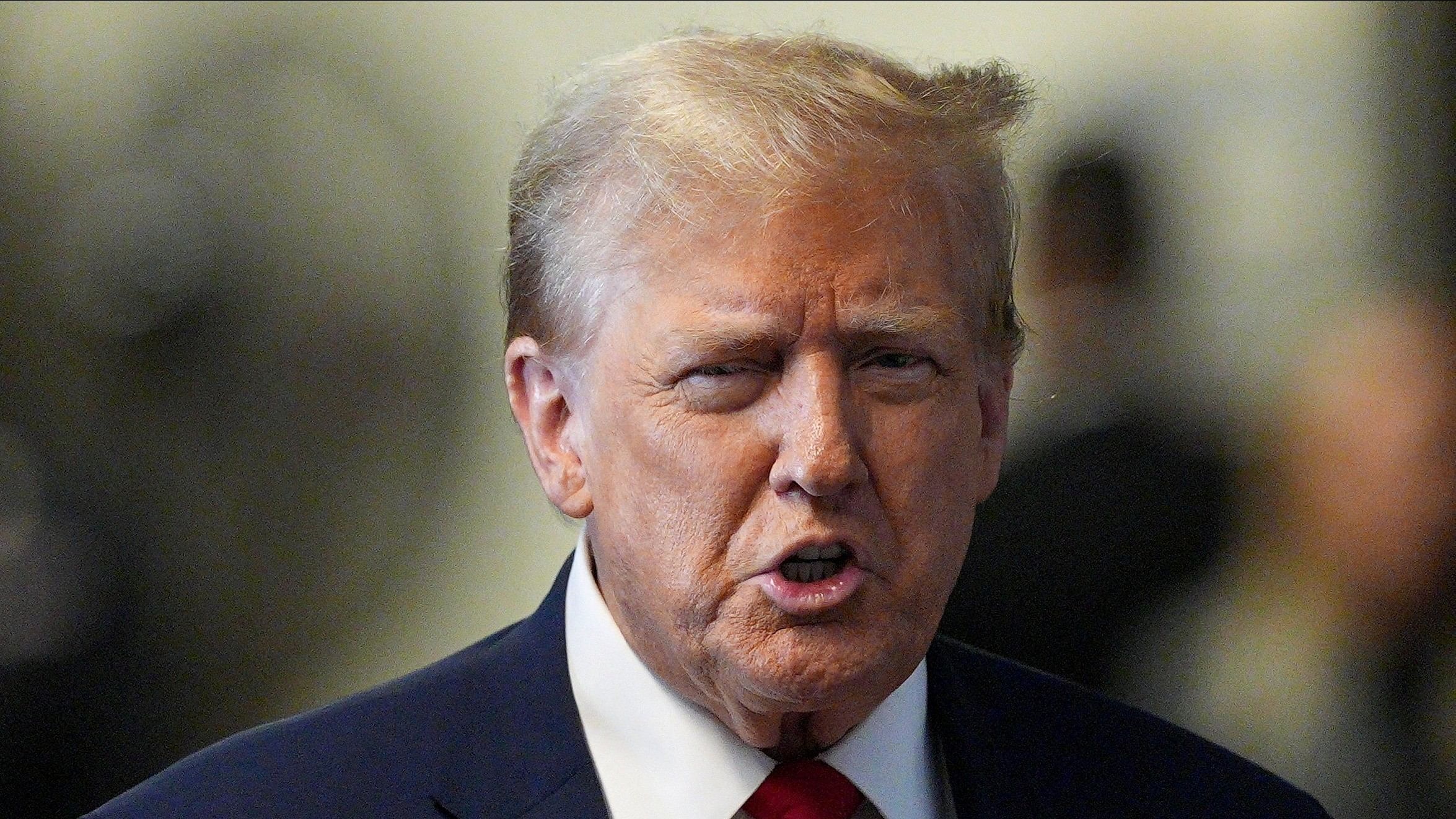
Former US President Donald Trump.
Credit: Reuters file photo.
Washington: Republican former President Donald Trump is planning to fundamentally alter the United States' relationship with Europe should he win a second four-year term in office.
On the campaign trail, he has also floated sending armed forces into Mexico to battle drug cartels and slapping expansive tariffs on friends and foes alike. Here is a look at the foreign policy proposals Trump has pledged to institute should he win the 2024 presidential election:
NATO, Ukraine and European allies
Trump has said that under his presidency, America would fundamentally rethink "NATO's purpose and NATO's mission." He has also said that he would ask Europe to reimburse the US for "almost $200 billion" worth of munitions sent to Ukraine, and he has not committed to sending any further aid to the eastern European nation if he were elected.
Trump cut defence funding to NATO toward the latter part of his time in office, and he frequently complained America was paying more than its fair share. On the war in Ukraine specifically, he has called for de-escalation, frequently claiming that he would have the conflict resolved in 24 hours. Though he has put forward few tangible policy proposals, he told Reuters in an interview last year that Ukraine may have to cede some territory to reach a peace agreement.
While Trump signaled in early April that he would be open to sending additional aid to Ukraine in the form of a loan, he remained mostly silent on the issue during contentious congressional negotiations over a $61 billion aid package later in the month.
China, Trade and Tarrifs
Trump frequently threatens to implement major new tariffs or trade restrictions on China—as well as on some European allies. His proposed Trump Reciprocal Trade Act would give him broad discretion to ramp up retaliatory tariffs on countries when they are determined to have put up trade barriers of their own.
He has also publicly and privately floated the idea of a 10% universal tariff, which could disrupt international markets. Trump has also called for an end to China's most favored nation status with respect to America, a status that generally lowers trade barriers between nations. He has vowed to enact "aggressive new restrictions on Chinese ownership of any vital infrastructure in the United States."
Trump rarely discusses Taiwan, or what he would do if China were to invade, beyond saying that China would never dare to invade if he were president.
Mexico and Narcotics
Trump has said that he would designate drug cartels operating in Mexico as foreign terrorist organisations, and that he would order the Pentagon "to make appropriate use of special forces" to attack cartel leadership and infrastructure, which would be unlikely to get the blessing of the Mexican government.
He has also said he would deploy the US Navy to enforce a blockade against the cartels and that he would invoke the Alien Enemies Act to deport drug dealers and gang members in the United States.
Civil rights groups and Democratic senators have pushed for the repeal of that act, passed in 1798, which gives the president some authority to deport foreign nationals while the country is at war.
Conflict in Israel
After first criticising Israeli leadership in the days after its citizens were attacked by Palestinian militant group Hamas on October 7, Trump has since said that Hamas must be "crushed." While his rhetoric has been bellicose, he has proposed few policy solutions, besides saying he would be tougher on Iran, which is closely linked to groups classified by the US as terrorist organizations, including Hamas.
Trump also said last year that he would seek to deport all "resident aliens" who are Hamas sympathizers. "Resident alien" is a legal term used to describe US permanent residents, also known as green card holders.
Afghanistan
Trump has said on the campaign trail that he would demand Afghanistan return military equipment abandoned by the US military during its 2021 withdrawal as a condition for keeping aid money flowing into the country.
He had said in 2021 that he would attempt to bomb the abandoned equipment, but he has not reiterated that position lately.
Climate
Trump has repeatedly pledged to pull out of the Paris Agreement, a multilateral accord meant to limit greenhouse gas emissions. He did pull out during his term in office, but the US rejoined the accord under Democratic President Joe Biden in 2021.
Missile Defence
Trump has pledged to build a state-of-the-art missile defense "force field" around the United States. He has not gone into detail, beyond saying that the Space Force, a military branch that his administration created, would play a leading role in the process.